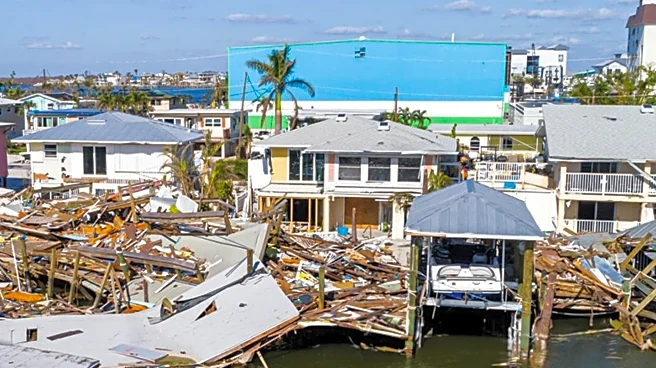What's Happening?
Research on the mental health impacts of Hurricane Katrina reveals that survivors often experience post-traumatic growth alongside post-traumatic stress disorder (PTSD). Studies have shown that while many survivors reported PTSD symptoms, such as intrusive thoughts and panic attacks, a significant number also experienced personal growth. This growth manifested in increased resilience, openness to new possibilities, and improved relationships. The phenomenon, known as post-traumatic growth, highlights the complex psychological responses to trauma.
Why It's Important?
The findings on post-traumatic growth among Hurricane Katrina survivors offer valuable insights into the human capacity for resilience and adaptation following traumatic events. Understanding this dual response can inform mental health interventions and support strategies for disaster survivors. It underscores the importance of providing resources and social support to facilitate recovery and growth. These insights are particularly relevant for policymakers and mental health professionals working to improve disaster response and recovery efforts.
Beyond the Headlines
The concept of post-traumatic growth challenges traditional views of trauma recovery, suggesting that adversity can lead to positive psychological changes. This perspective may influence how mental health services are designed, emphasizing the potential for growth and resilience. Additionally, it highlights the role of social support and self-efficacy in recovery, suggesting that community and individual resources are crucial in fostering post-traumatic growth.








